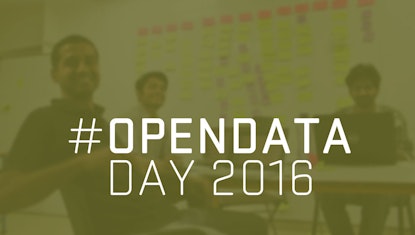Open contracting: 3 reasons why citizens benefit most

Today is Open Data Day. In Mexico, citizens will be hacking open contracting data on one of the largest infrastructure projects for the country this decade, the new airport for Mexico City. In Nepal, contracts are at the center of rebuilding the country, still suffering from a devastating earthquake in 2015.
Open contracting offers a revolution for public procurement. An estimated US$ 9.5 trillion of money spent by government in deals with business is starting to find its way into the public.
Open contracting also offers the revelation for more efficient and effective government. In Ukraine, for example, between 10-20% has saved so far relative to budgeted amounts under the government’s new, open Prozorro procurement process.
Business has seen opportunities increase. Participation in government contracts has nearly doubled in Slovakia after disclosing tenders and contracts openly and putting in place simple and fair processes for awarding contracting.
But it could be citizens are those who benefit most.
Here’s why:
1. Less fraud and waste means better projects
Governments use public contracting to provide vital infrastructure, goods and services to citizens. Take schools: When they are build to substandard specifications in an earthquake zone, disasters are bound to happen. In Sichuan, China, contractors built schools to chear and shoddy standards. In 2008, disaster struck, the schools collapsed like ‘tofu’ killing over 5000 students and teachers. The government later arrested parents for protesting, not the contractors. Public disasters like this keep happening such as in Padang, Indonesia or in Haiti
In Nigeria, the Public Private Development Centre launched a project called Budeshi, meaning “open it”, to unlock and monitor contracts to build schools or primary health care centres. Basic, useable data on the project gives the public a chance to track performance of the contractor and ensure it delivers on its promise of public benefit. This way, they can know what type of centre is to be built where, what are exact service to be offered, the money paid to the contractor to fulfill the project and who the contract was eventually awarded to. This isn’t always easy for specialist projects but a number of great methodologies have been developed to assist such as Integrity Action’s Development Check process.
2. Early engagement and better project planning
Better data and information provides more opportunity to provide informed feedback.
For example, a public-private contract was signed in 2014 to build a $300 million waste treatment plant serving 2.5 million people in the metropolitan area of the capital of Minas Gerais, Belo Horizonte. During preparation, the project team operated under a policy of full disclosure and held public meetings for all potential stakeholders. Sharing and discussing this information changed the project dramatically. Eventually, responding to the feedback, the facility was relocated to a less-populated area.
3. And lastly, improved government feedback and accountability
This is not some abstract promise. In Slovakia teachers were able to discover suspicious contracts for bottles of luxury cognac and fancy car rentals in the Ministry of Education at a time that they were facing frontline cuts under budget pressure.They found the information after checking the ministry’s spending through a contract database built by TI Slovakia.
In Chile, the platform ComprasTransparentes by the journalism organization Poderopedia visualizes detailed information on contracts down to the level of a hospital.
Of course, open data and transparency in itself will not automatically translate into accountability. Opening up contracting data will only be as impactful as the capacity of users to understand and transform it. We have to complement the push to open up more public contracting information with support to those on the demand side, who will use the data to drive real change and unlock the benefits of open contracting for government, business and citizen.
To drive this social progress and a more engagement by civil society, the Open Contracting Partnership, Hivos and Article 19 are looking forward to be working together. A new global program will support infomediaries – independent journalists, hacktivists, artists, academics and civic watchdogs – in opening up and making contracting data actionable.
Getting together today to start asking for better data from government is crucial. Let us know what you are working on and how open contracting could help!
Photo: Exploring data in Hyderabad. Open Knowledge CC BY 2.0